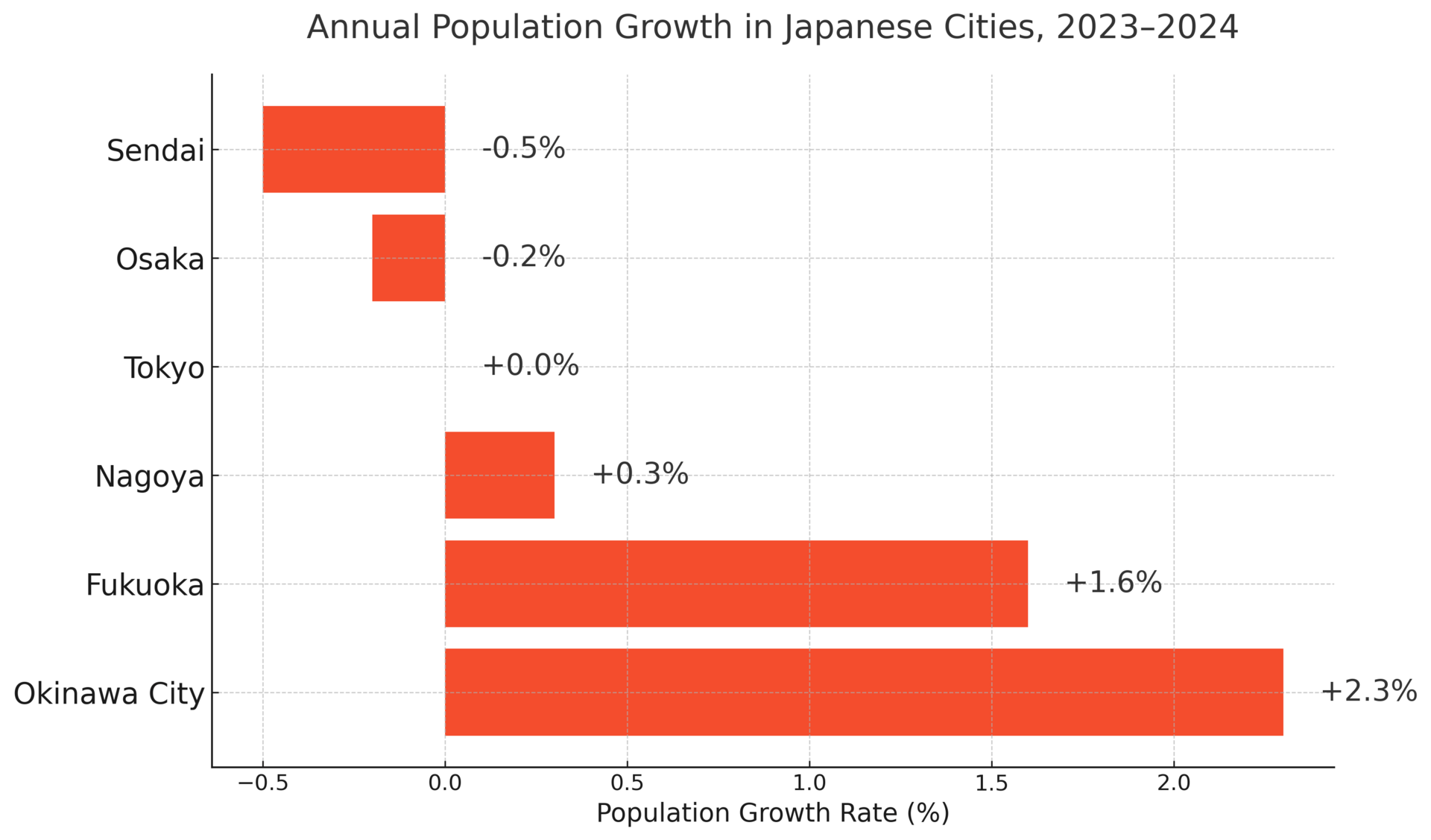- World Population Review Newsletter
- Posts
- Why Second Cities Are the Next Big Thing
Why Second Cities Are the Next Big Thing
Cost, lifestyle, and opportunity are reshaping the global city map.
Greetings, curious mind of action and insight!
What if your next great move wasn’t to a capital—but to its smarter, quieter sibling?
All over the world, so-called “second cities” are booming. They offer lower costs, more space, rising economies—and far fewer headaches than their overstuffed counterparts. From Porto to Pittsburgh, the smart money (and smart people) are moving.
Why now? Where to? And what does this mean for your future?
Let’s find out.
Receive Honest News Today
Join over 4 million Americans who start their day with 1440 – your daily digest for unbiased, fact-centric news. From politics to sports, we cover it all by analyzing over 100 sources. Our concise, 5-minute read lands in your inbox each morning at no cost. Experience news without the noise; let 1440 help you make up your own mind. Sign up now and invite your friends and family to be part of the informed.
Porto has emerged as Portugal’s low-key answer to Lisbon—retaining the charm, culture, and cuisine but with lower rents, lighter crowds, and a thriving digital nomad scene.
Rents here are 30–40% lower than Lisbon’s, and the cost of living is one of the lowest in Western Europe. Yet Porto offers vibrant neighborhoods, co-working cafés, and easy access to the Douro Valley wine country.
Foreign investment is rising too, with international schools and tech hubs sprouting across the metro. And while Portugal’s Golden Visa program has tightened, Porto still appeals to retirees, entrepreneurs, and remote workers seeking a foothold in Europe.
🔍 Fascinating insight: In 2024, Porto saw a 67% year-over-year increase in foreign remote workers—many of them relocating from pricier European capitals.

Once defined by its steel mills, Pittsburgh is now forging a future in robotics, AI, and clean energy. It’s become one of America’s most unlikely tech hubs, thanks in part to Carnegie Mellon University and a wave of public-private investment.
Median home prices hover around $200,000—less than half the national average—and its healthcare system ranks among the best in the U.S. Add in riverfront parks, historic neighborhoods, and a brewing foodie scene, and you get a second city rewriting its story.
The city’s population skews older, making it increasingly attractive for retirement—with better safety scores and healthcare access than many Sun Belt hotspots.
📈 Trend to watch: Pittsburgh has one of the fastest-growing 65+ populations among U.S. cities—a signal of its rising appeal for retirement.
Kraków is more than a medieval postcard—it’s become one of Europe’s most vibrant tech and business process outsourcing centers. With nearly 200,000 university students and a cost of living that’s 50% lower than Berlin’s, the city is luring talent from across the EU.
Multinationals like IBM, Google, and Shell have set up shop here, creating an ecosystem of skilled jobs and international connectivity. And while Warsaw remains Poland’s capital, Kraków increasingly wins on lifestyle: walkable streets, mountain access, and less pollution.
🧠 Little-known fact: Kraków has the highest concentration of foreign-language call centers in the EU—making it a magnet for multilingual expats.

While Mexico City buzzes with culture and chaos, Mérida hums with calm—and has quietly become a favorite for retirees and digital nomads.
Located in the Yucatán Peninsula, Mérida boasts colonial charm, low crime, and a healthcare system that draws medical tourists from the U.S. and Canada. Real estate remains affordable, and expat communities are growing fast—but without the overtourism of Tulum or Cancun.
It’s also one of Mexico’s most climate-resilient cities—an increasing consideration for relocation in a warming world.
🔒 Fascinating stat: Mérida consistently ranks as the safest city in Mexico and among the top 10 safest in all Latin America.

Forget Tokyo. Fukuoka is Japan’s most livable city, with a booming startup culture, lower costs, and a climate that’s gentler on the bones.
With government-backed visa programs for entrepreneurs, and proximity to both South Korea and China, Fukuoka is building itself as a gateway between Japan and Asia. Young professionals are flocking here, reversing decades of urban decline in Japan’s smaller cities.
Bonus: It’s one of the only Japanese cities where population is still growing—a rare feat in a country facing demographic contraction.
💡 Surprising fact: Fukuoka has Japan’s highest startup rate—and one of the youngest average populations among major cities.

While Toronto and Vancouver grapple with housing crises, Calgary offers a high-income, low-tax alternative with stunning natural beauty.
Once dominated by oil and gas, Calgary’s economy is diversifying into tech, agribusiness, and clean energy. The city offers median household incomes 20% above the national average—and no provincial sales tax. Real estate prices are still relatively affordable, especially for those cashing out of pricier provinces.
Its proximity to the Rockies makes it ideal for active retirees or anyone craving wide-open spaces and fresh mountain air.
📊 Did you know? Calgary now has the highest rate of net interprovincial migration in Canada, fueled by affordability and lifestyle appeal.

Zoom out, and the pattern becomes clear. Second cities are thriving not by accident—but because they offer answers to modern challenges.
✅ Remote work has broken the tether to major capitals.
✅ Cost of living crises push people to seek better value.
✅ Environmental and lifestyle priorities now matter as much as proximity to boardrooms.
From Da Nang to Valencia, second cities are rewriting what it means to "live well." They're not second-best—they're simply the next smart choice.
🌎 Future projection: By 2030, over 60% of urban migration is expected to favor second-tier cities over megacities, according to the OECD.

As global lifestyles evolve, so too do the maps of opportunity. The rise of second cities offers a powerful reminder: you don’t need to be in the center to be at the forefront.
Whether you're planning your retirement, scouting your next investment, or dreaming of a lifestyle change—these underdog cities deserve a closer look.
Until next time, stay curious, stay bold, and keep exploring.
Warm regards,
Shane Fulmer
Founder, WorldPopulationReview.com
P.S. Want to sponsor this newsletter? Reach 126,000+ global-minded readers — click here!

